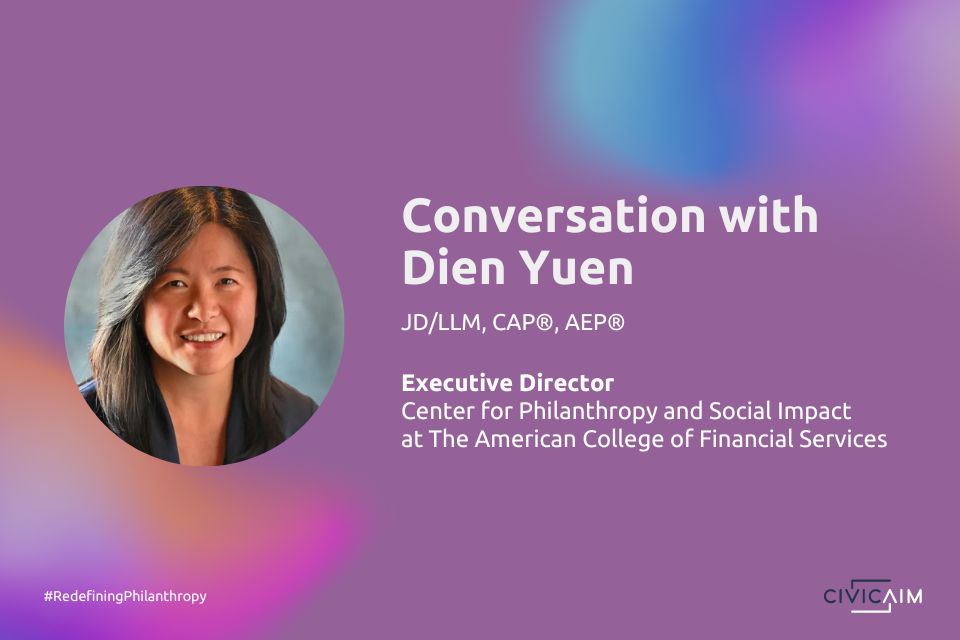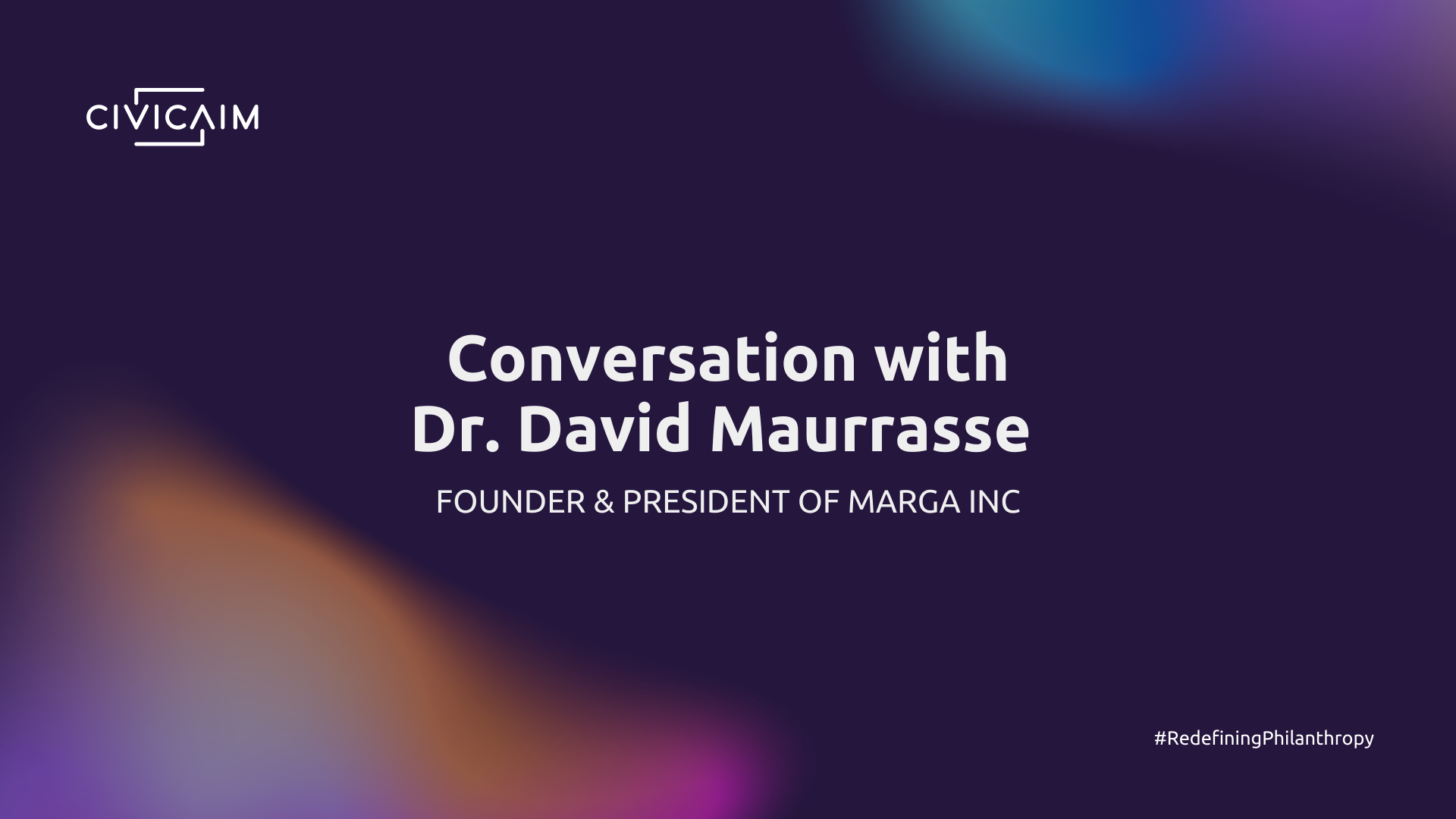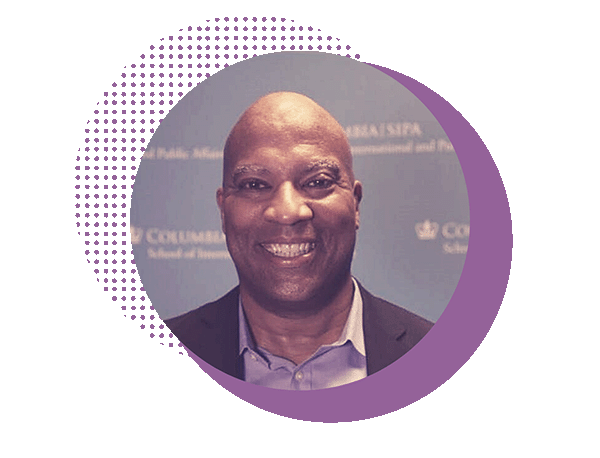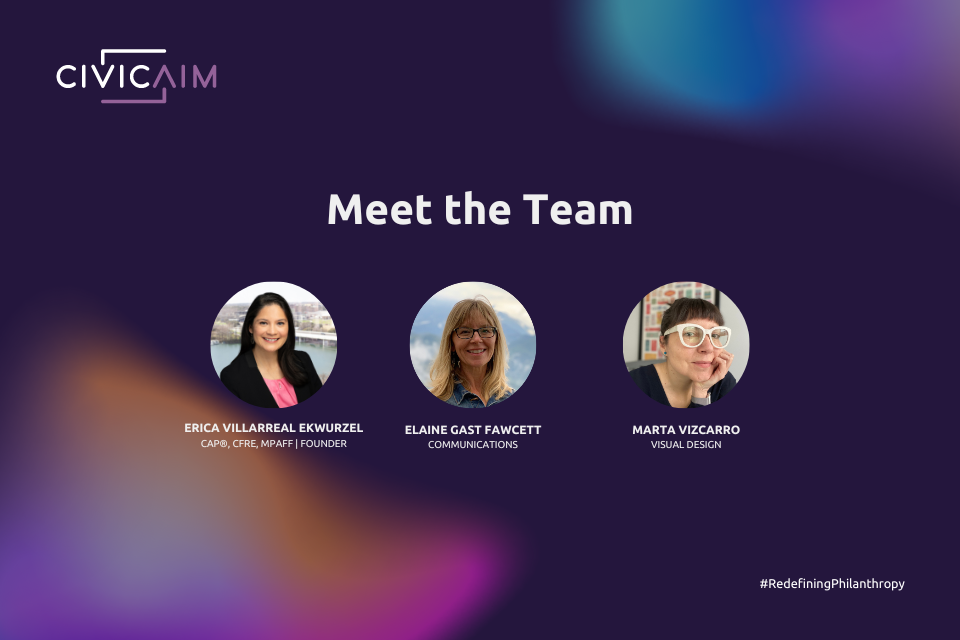
Reflecting and Reimagining Philanthropy
November 5, 2021
Redefining philanthropy: A Conversation with Dien Yuen
August 25, 2022

I’m delighted to share the second video in Redefining Philanthropy in Practice and Profession, a new CivicAIM video series that features leaders who are at the forefront of centering equity in philanthropy. In this episode, I’m honored to share a conversation with someone I highly respect—Dr. David Maurrasse. David is an author, speaker, academic professor, and institutional change expert. He is founder and president of Marga, Inc., a consulting firm founded in 2000 providing strategic advice and research to philanthropic initiatives and community partnerships. And he has been a longtime leader and facilitator of the Race and Equity in Philanthropy Group, which engages foundations in peer learning and change to their institutional policies and practices.
David has worked with some of the largest institutions out there, including the Rockefeller Foundation, Annie Casey Foundation, and Colombia University. I first met David through our shared service to the National Network of Consultants to Grantmakers.
Here's a snippet of our compelling conversation. You can watch the full video here.
What was the path that led you to philanthropy and to start Marga inc. and the Racial Equity group?
It’s more of a personal mission for me. Everything I do aligns to how to creatively leverage existing resources for the purposes of community change, equity, and justice. I found philanthropy as an intriguing way of doing that. Early on, working on the nonprofit and fundraising side, I was exposed to philanthropy and saw its promise and its many contradictions.
What’s the arc of change you’ve seen in the field, over time and particularly in the last two years with the racial reckoning?
When I started in this work in 2000 by conducting a study by the Annie Casey Foundation, one of the findings was that very few foundations had policies and practices that were directly about race, and racial equity, or diversity, equity, and inclusion. They might have had a grantmaking portfolio, yet no strategy around it. The level of commitment in foundations was limited. Today, a lot of questions are being asked in ways they never were. There’s an increased level of curiosity–more training, more conversation, more statements, more movement in terms of policies—but to what degree will that lead to longstanding systemic change? That’s the question, and to a degree, a concern.
What would you say to engage more Black, Indigenous, and people of color (BIPOC) advisors in philanthropy, and intentionally create a space that works for them?
Philanthropy is a very relationship-based field, and relationships often play a real role in who ends of becoming consultants to a foundation. Conversations are important, and that includes informational interviews with people at different foundations. We have more people of color who are consultants to grassroots organizations, and they could be philanthropy consultants. As a field, we have to be more intentional about creating those pathways.
Knowing that philanthropy is just one part of a larger ecosystem for widescale systemic change, what are your hopes for what’s possible in redefining philanthropy?
There are creative and interesting ways foundations can be transformative in their local communities, and within their own organizations. We can’t simply have foundations sending more grants to BIPOC communities without looking at their own practices. We’ll see real change in philanthropy once we see real change in the foundations and donors who are doing that philanthropy.

"Philanthropy is a field in which relationships open doors. As a field, we must be more intentional about creating pathways for people of color to lead."
What We’re Reading
Check out the Race and Equity Group in Philanthropy white papers, authored by David Maurrasse and his team at Marga Inc.:
- Incorporating Racial Equity into Institutional Strategy, Marga, Inc., Summer 2000.
- Incorporating Racial Equity and Inclusion into Communication Strategy, Marga Inc., September 2021.
What’s Your Philanthropic Aim?
CivicAIM is a philanthropy consulting firm focused on strengthening grantmaking, governance, and impact. CivicAIM supports mission-driven families, small-staffed foundations, funder collaboratives, and giving circles. Together with you, we develop and execute grant and evaluation strategies that lead you to impact, and we facilitate critical conversations and transitions that strengthen your board’s decision making.


